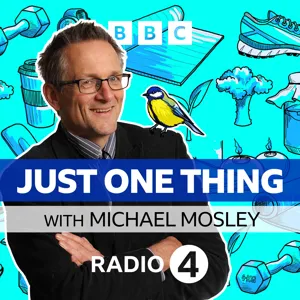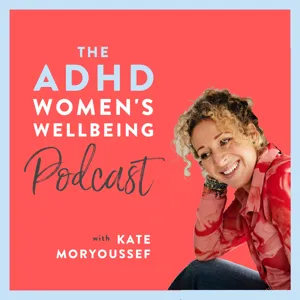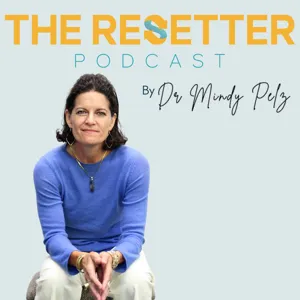Podcast Summary
Continuous learning keeps the brain young: Learning new things and challenging the brain can help maintain cognitive abilities as we age, making us mental superagers
Continuing to learn new things, especially challenging ones, can help keep your brain sharp and improve cognitive abilities as we age. This was discussed in the BBC Radio 4 podcast "Stay Young," where Doctor Michael Mosley interviewed an 80-year-old superager named Richard Wilson. Superagers are individuals whose brains age much slower than their chronological age. Richard, who is a life peer in the House of Lords, shared that he hasn't noticed significant mental decline despite being 80 years old. Researchers at Cambridge University have been studying superagers to understand how they maintain their cognitive abilities. One reason suggested is that continuous learning and challenging the brain keeps it active and healthy. So, whether it's learning a new language, picking up a new hobby, or taking on a complex project, never stop learning to keep your brain young and sharp.
Staying curious, determined, and engaged in learning are essential for successful aging.: Lord Layard's personal story and research from the Cambridge Centre for Aging and Neuroscience highlight the importance of curiosity, determination, and education for maintaining mental sharpness and productivity as we age.
Maintaining curiosity, determination, and a willingness to challenge oneself are key to staying sharp and productive as we age. Lord Richard Layard, a renowned economist and public figure, shared his personal story of self-taught reading and a lifelong career filled with seemingly insurmountable challenges that he ultimately overcame. He emphasized the importance of following one's curiosity, persisting through stress, and not letting age be a limiting factor. These characteristics, which scientists refer to as "super-aging," have been observed in individuals who continue to excel cognitively as they grow older. Lord Layard also highlighted the importance of education, particularly in the area of problem-solving, as a significant factor in maintaining cognitive abilities. Research from the Cambridge Centre for Aging and Neuroscience supports this idea, showing that a strong educational background can contribute to better cognitive performance in later life. In summary, staying curious, determined, and engaged in learning new things are essential components of maintaining mental sharpness and productivity as we age. Lord Layard's personal story and the findings from the Cambridge Centre for Aging and Neuroscience provide valuable insights into the importance of these characteristics for successful aging.
Continuous learning in late life builds neural connections and protects brain cells: Learning new skills in your forties, fifties, and beyond can improve cognitive abilities and counteract natural brain cell loss. Intense learning experiences build myelin sheaths and increase neural connections.
Engaging in new activities and learning new skills, especially in your forties, fifties, and beyond, can significantly impact late-life cognitive abilities, even more so than education. This is because continuous learning builds neural connections in the brain, which may counteract the natural loss of brain cells as we age. The intensity of the learning experience is also crucial, as it leads to the formation of myelin sheaths around the neighboring cells, protecting them from decline. A study showed that just six weeks of juggling practice or learning a new language could increase white matter, a measure of neural connections. It's never too late to start learning something new, and the benefits can be substantial. In a study, older adults in their seventies were able to perform as well on memory tests as someone decades younger by learning three new skills simultaneously. Dr. Rachel Wu, a researcher at the University of California, Riverside, was inspired by her background in infant and child developmental psychology and the idea that providing a similar learning environment for older adults could yield the best benefits. In her most recent study, she had older adults learn multiple new skills at the same time for three months, leading to improved cognitive abilities.
Improving cognitive abilities in older adults through new activities: Older adults can improve cognitive abilities by engaging in new activities, leading to performance levels similar to younger individuals due to new brain connections. Committing time to a variety of new skills yields greater benefits.
Engaging in new and challenging activities can significantly improve cognitive abilities in older adults, even leading to performance levels similar to much younger individuals. This was demonstrated in a study where participants in their seventies showed cognitive abilities comparable to those in their twenties a year after the intervention. The key to this improvement seems to be the creation of new brain connections, as shown in other studies. For those looking to start, it's recommended to challenge oneself with a variety of new skills, rather than focusing on one area alone. The amount of time invested will determine the extent of the benefits, so committing as much time as possible to learning new skills is encouraged. The speaker, who is also a learner, emphasizes the importance of not being a hypocrite and practicing what one preaches.
Explore new skills for personal growth and better health: Continuous learning and trying new skills can improve memory, focus, make your brain younger, enhance roles and identities, and lead to improved mood, sleep, and immune system.
Continuous learning and trying new skills, even if it's challenging, can significantly improve various aspects of your life. It can enhance your memory, focus, and make your brain younger. Furthermore, men today are undergoing radical changes in their roles and identities, and it's essential to understand and adapt to these changes to pass on valuable insights to the next generation. Additionally, simple lifestyle changes, such as learning a new skill or eating fermented foods, can lead to improved mood, sleep, and immune system. Lastly, health insurance is a necessity that doesn't change, and flexible and budget-friendly coverage options like UnitedHealthcare TriTerm Medical plans can provide peace of mind for nearly three years in some states. Finally, 1800flowers.com is not just a gift-giving destination; it's a place where everything is made with love to help deliver smiles to loved ones for all life's special occasions.





